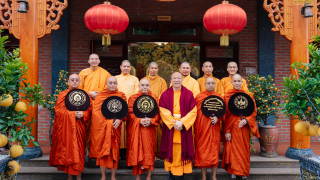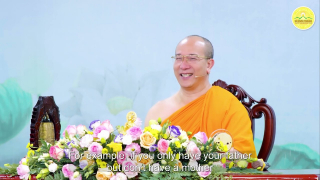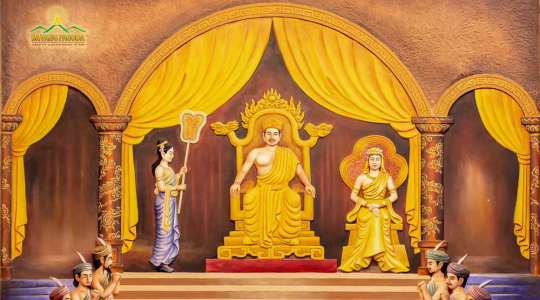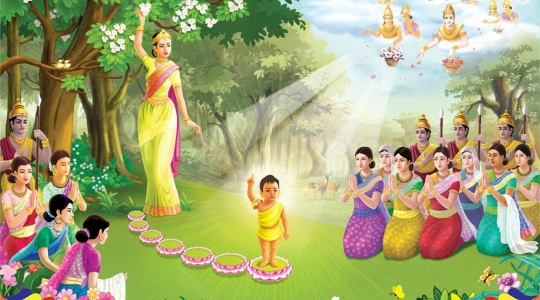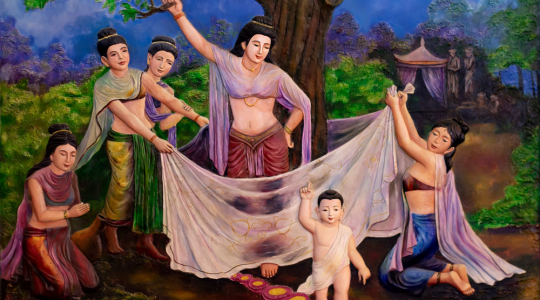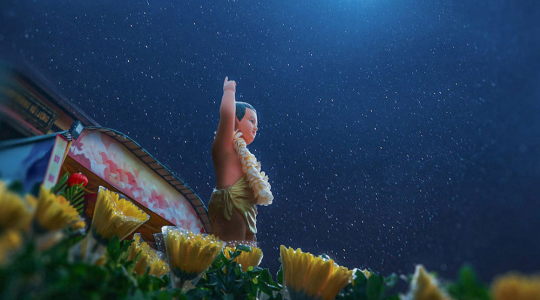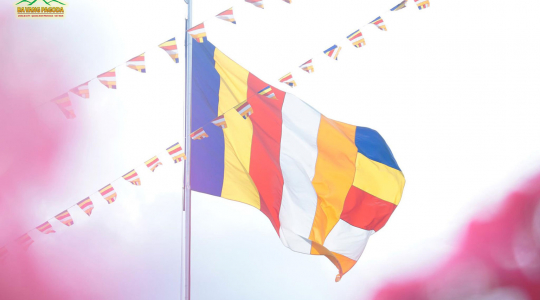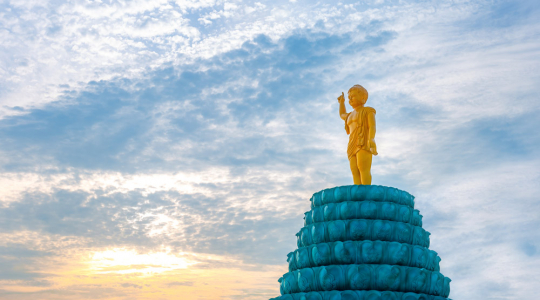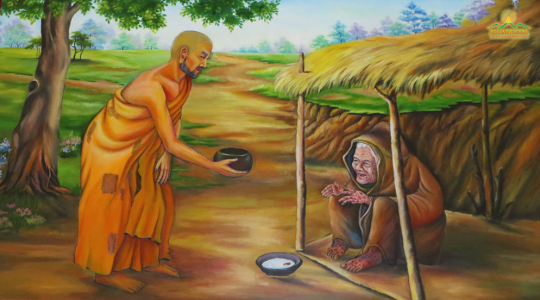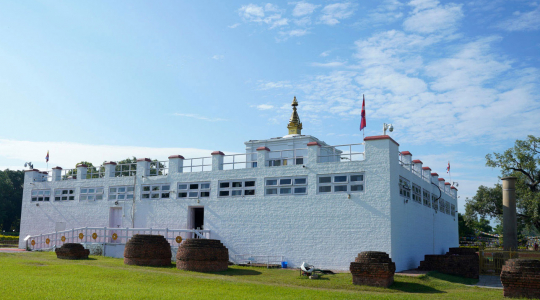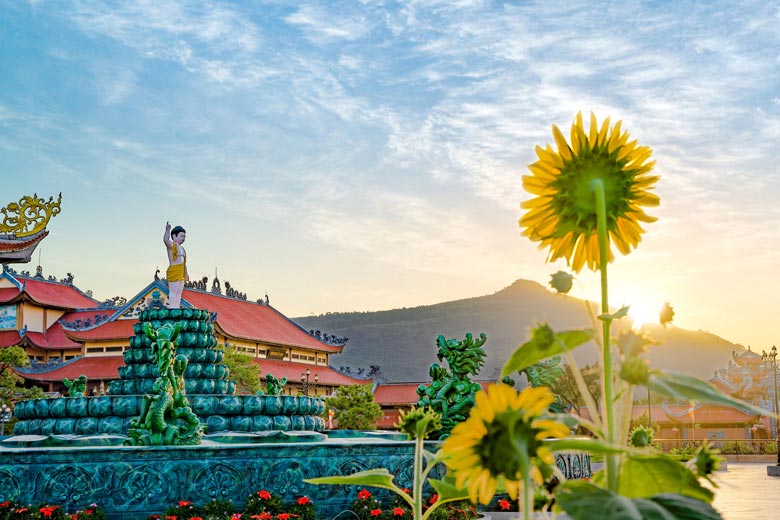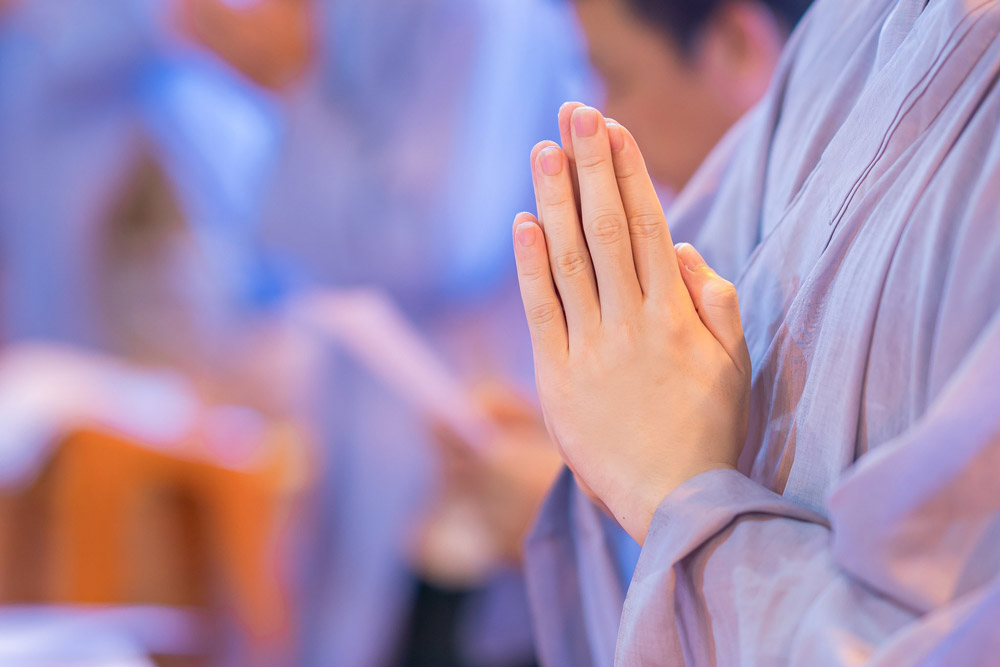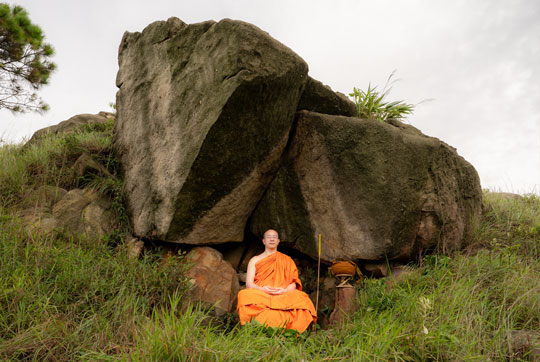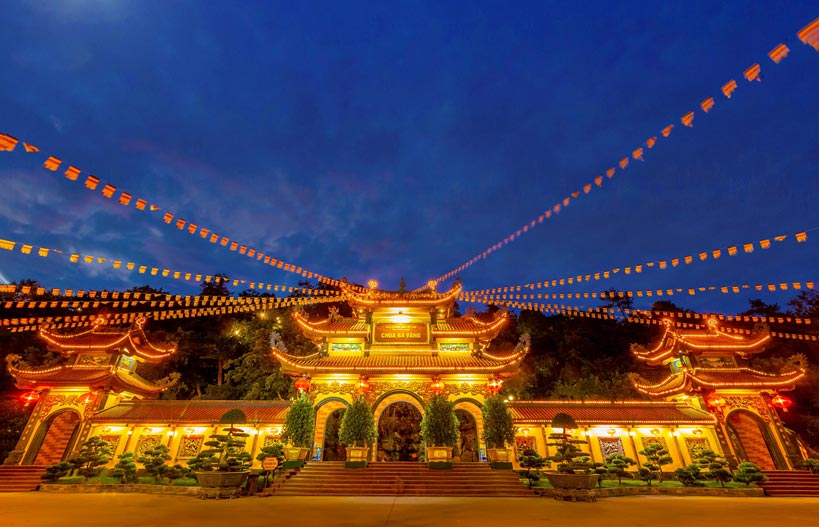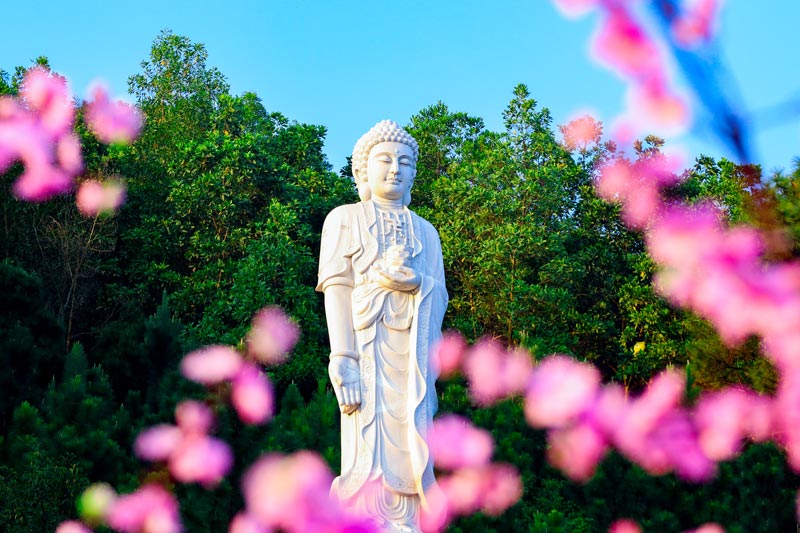What is the Buddha Bathing Ritual and why is it significant?
Table of contents [Hide]
Every year in the fourth lunar month [1], Buddhists worldwide celebrate Vesak Day with interesting activities and impressive spiritual experiences, prominently the Buddha Bathing Ritual. Where does this ritual come from and what is its meaning that draws many participants' attention?
[1] The fourth lunar month usually falls in May in the solar calendar
1. The origin of the Buddha Bathing Ritual
The Buddha Bathing Ritual might originate from the story of the Buddha's birth. According to the Mahapadana Sutta, when Prince Siddhartha or the Buddha was born in Lumbini Garden (present-day Nepal), two water streams suddenly appeared in the sky, one warm and one cool, pouring down to bathe the Prince and his mother, Queen Maya. Meanwhile, the Lalitavistara Sutta states that these two streams came from nine celestial dragons spouting to bathe the Prince.
Despite slightly different records in each sutra, the event of water streams showering the Prince at his birth is real. It is a miraculous happening when a great man was born into the world.
Nowadays, the Buddha Bathing Ritual is usually held during the Vesak festival. In some countries such as Thailand, Myanmar, Laos, Cambodia, etc. This activity is also included in their traditional new year celebration. During these festivals, following the virtue of the devas, Buddhists offered flowers and water to bathe the statue of the newborn Buddha to commemorate the image of the infant Prince walking seven steps on lotus flowers with his majestic appearance, 32 good signs and 80 marks in the welcome of the humans and devas.
2. The meaning of the Buddha Bathing Ritual
The ritual of bathing the Buddha has a humanistic meaning. It not only expresses the reverence of Buddhists for the Buddha on the occasion of Vesak Day but also gives everyone a chance to introspect themselves so that they will reduce bad seeds, increase good seeds, open their minds, raise the seeds of enlightenment, make life more meaningful and bring happiness to all sentient beings in this universe.
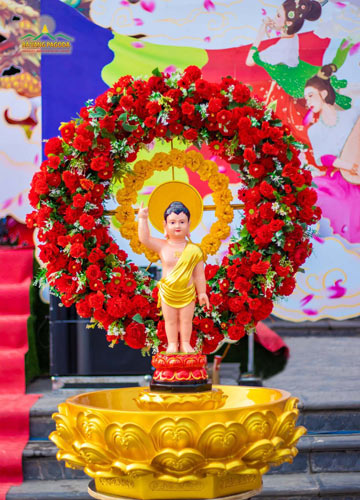
A beautiful garland of flowers is meticulously twisted to decorate the Buddha statue
The Sutra on the Merit of Bathing the Buddha states that this ritual activity brings many blessings to offerers. Therefore, when we offer water to shower the Buddha with sincere, respectful, and absolute faith in the Buddha, the subsequently generated merits and blessings are immense.
3. How is the Buddha Bathing Ritual performed?
In this ritual, use a ladle to gently pour water down from the Buddha's shoulder, wishing that everyone remembers the Buddha's birth; after that, scatter flower petals on the Buddha statue.
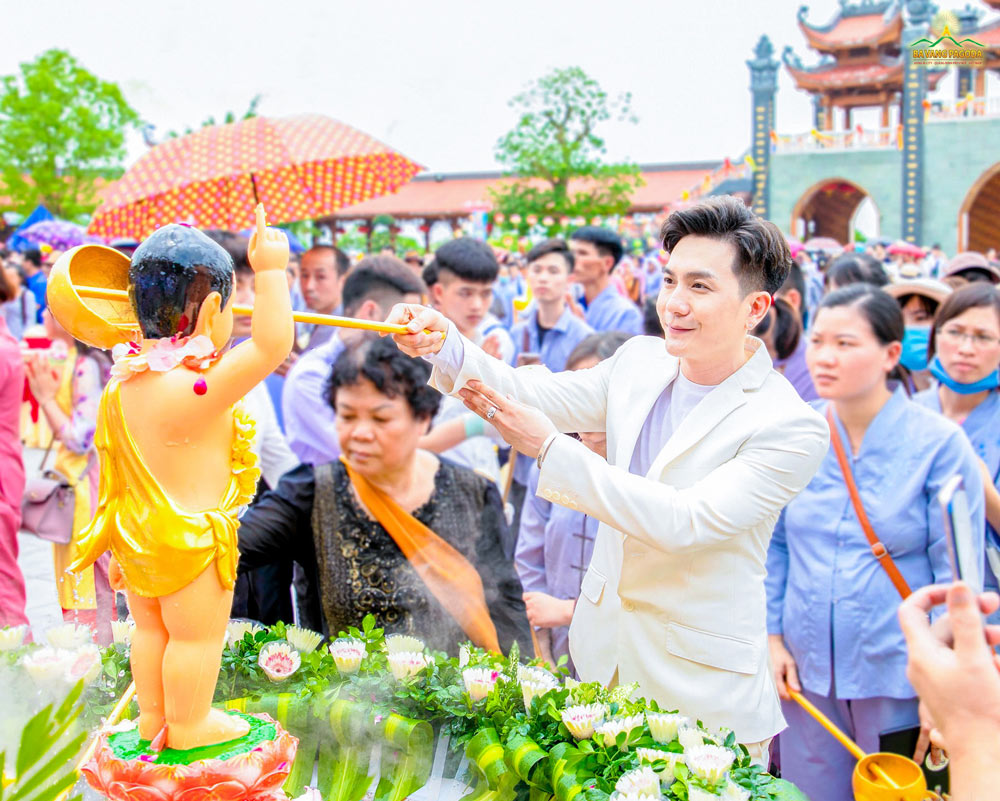
“Heart filled with joy, I pour water - Everywhere virtue scent fills.” Following the virtue of devas, Buddhists respectfully offer water to bathe the Buddha statue
For water offered in the Buddha Bathing Ritual, we should use pure or tap one and choose a solemn and clean place.
In some countries, this ritual shows their unique culture. For example, in Japan, during the Hana Matsuri festival celebrating the Buddha's Birthday, people typically offer a sweet tea called amacha to bathe the Buddha; after bathing, they also drink that water, praying for blessings.
Thay Thich Truc Thai Minh once shared about this later activity when teaching about this ritual's meaning: "I think it is not ineffective. As people's mind heads to that water, it certainly generates good energy. In the Sutra on the Merit of Bathing the Buddha, this water is known as "good-luck water", which means a very good and auspicious one. If we use it with our utmost faith, sincerity, and reverence, it can cure our illness and provide us more insight."
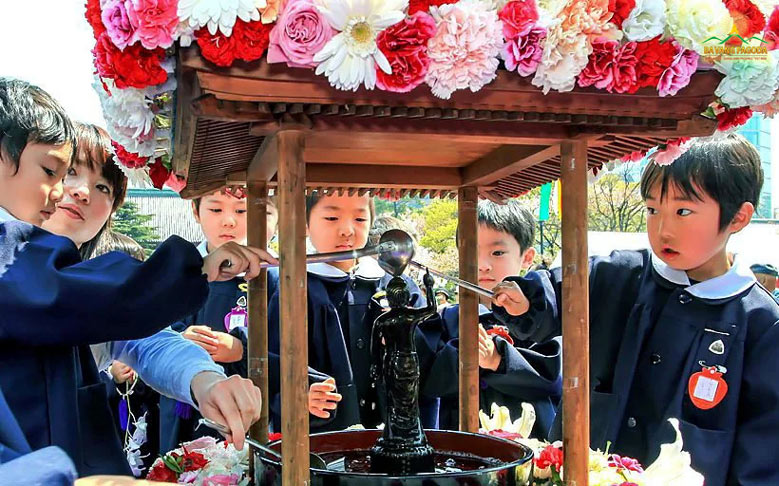
Children focus on bathing the Buddha in Buddha's Birthday celebration (Kanbutsu-e) at Zojoji Temple, Tokyo, Japan
No matter where it is held, at the Buddha Bathing Ritual, we might encounter two emotions: joy and reverence for the Buddha. If you are in Vietnam, you can visit Ba Vang Pagoda in Quang Ninh Province, one of the most prominent places to celebrate Buddhist festivals in Vietnam, to experience the atmosphere of the Buddha Bathing Ritual.
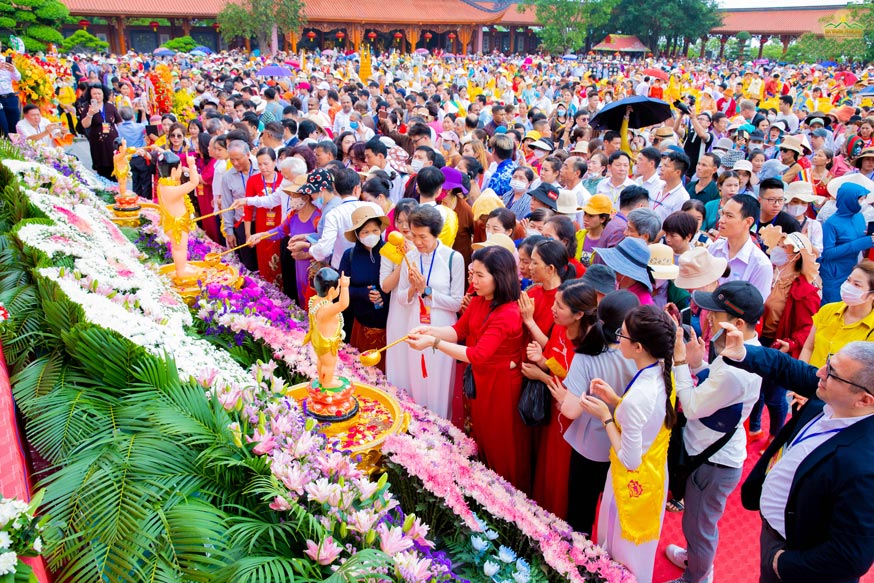
A huge number of people solemnly joined the Buddha-bathing ritual in the Grand Celebration of Vesak 2023 at Ba Vang Pagoda
Annually, on the occasion of Vesak Day (or Buddha Day), the Pagoda receives tens of thousands of attendees at home and abroad. Aside from solemn Buddhist rituals, many other unique activities during this festival, including art performances, a float parade, a lantern parade, etc., also leave a special impression on the participants; there, they experience the festival's joyful, bustling, emotional atmosphere.
The Buddha Bathing Ritual is a meaningful event to express gratitude and commemoration to the Buddha, who brought the method to save all beings from suffering. Through this, we hope you will understand this ritual as well as its unique meaning and spread it to everyone!


